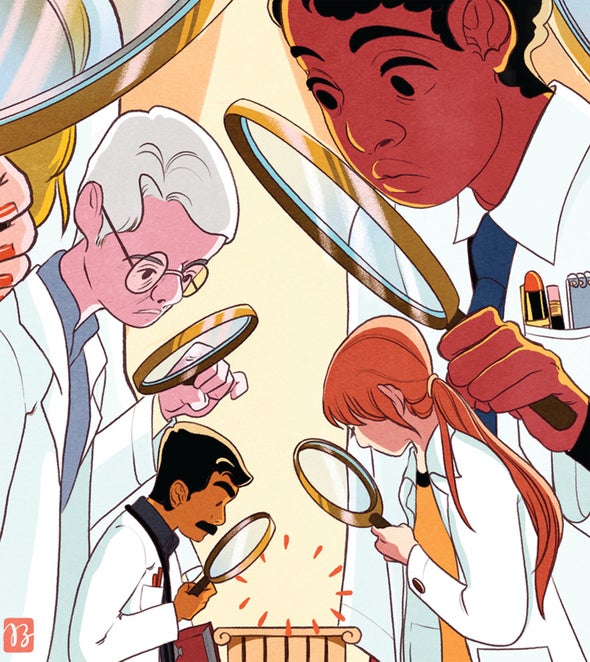The COVID crisis has led many scientists to take up arms (or at least keyboards) to defend their enterprise—and to be sure, science needs defenders these days. But in their zeal to fight back against vaccine rejection and other forms of science denial, some scientists say things that just aren't true—and you can't build trust if the things you are saying are not trustworthy.
One popular move is to insist that science is right—full stop—and that once we discover the truth about the world, we are done. Anyone who denies such truths (they suggest) is stupid, ignorant or fatuous. Or, as Nobel Prize–winning physicist Steven Weinberg said, “Even though a scientific theory is in a sense a social consensus, it is unlike any other sort of consensus in that it is culture-free and permanent.” Well, no. Even a modest familiarity with the history of science offers many examples of matters that scientists thought they had resolved, only to discover that they needed to be reconsidered. Some familiar examples are Earth as the center of the universe, the absolute nature of time and space, the stability of continents, and the cause of infectious disease.
Science is a process of learning and discovery, and sometimes we learn that what we thought was right is wrong. Science can also be understood as an institution (or better, a set of institutions) that facilitates this work. To say that science is “true” or “permanent” is like saying that “marriage is permanent.” At best, it's a bit off-key. Marriage today is very different from what it was in the 16th or 18th century, and so are most of our “laws” of nature.
Some conclusions are so well established we may feel confident we won't be revisiting them. I can't think of anyone I know who thinks we will be questioning the laws of thermodynamics any time soon. But physicists at the start of the 20th century, just before the discovery of quantum mechanics and relativity, didn't think they were about to rethink their field's foundations, either.
Another popular move is to say scientific findings are true because scientists use “the scientific method.” But we can never actually agree on what that method is. Some will say it is empiricism: observation and description of the world. Others will say it is the experimental method: the use of experience and experiment to test hypotheses. (This is cast sometimes as the hypothetico-deductive method, in which the experiment must be framed as a deduction from theory, and sometimes as falsification, where the point of observation and experiment is to refute theories, not to confirm them.) Recently a prominent scientist claimed the scientific method was to avoid fooling oneself into thinking something is true that is not, and vice versa.
Each of these views has its merits, but if the claim is that any one of these is the scientific method, then they all fail. History and philosophy have shown that the idea of a singular scientific method is, well, unscientific. In point of fact, the methods of science have varied between disciplines and across time. Many scientific practices, particularly statistical tests of significance, have been developed with the idea of avoiding wishful thinking and self-deception, but that hardly constitutes “the scientific method.” Scientists have bitterly argued about which methods are the best, and, as we all know, bitter arguments rarely get resolved.
In my view, the biggest mistake scientists make is to claim that this is all somehow simple and therefore to imply that anyone who doesn't get it is a dunce. Science is not simple, and neither is the natural world; therein lies the challenge of science communication. What we do is both hard and, often, hard to explain. Our efforts to understand and characterize the natural world are just that: efforts. Because we're human, we often fall flat. The good news is that when that happens, we pick ourselves up, brush ourselves off, and get back to work. That's no different from professional skiers who wipe out in major races or inventors whose early aspirations go bust. Understanding the beautiful, complex world we live in, and using that knowledge to do useful things, is both its own reward and why taxpayers should be happy to fund research.
Scientific theories are not perfect replicas of reality, but we have good reason to believe that they capture significant elements of it. And experience reminds us that when we ignore reality, it sooner or later comes back to bite us.

